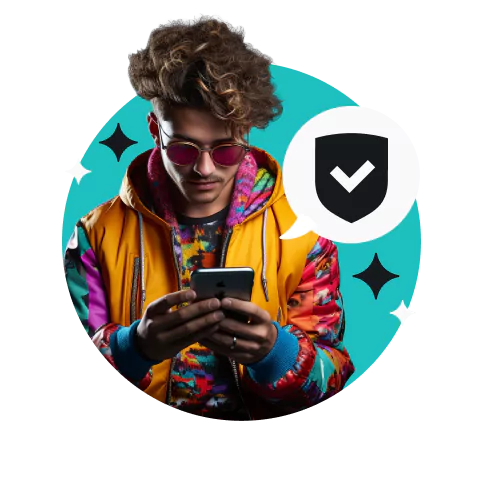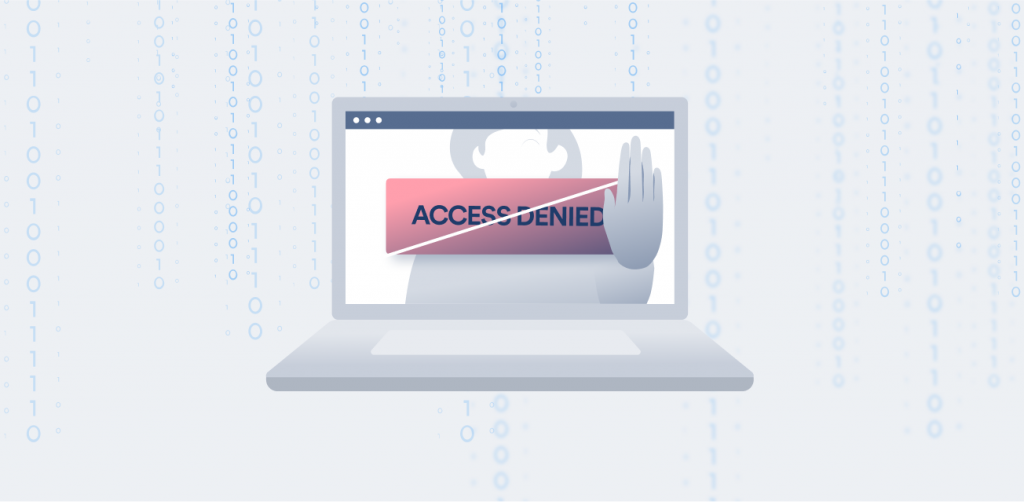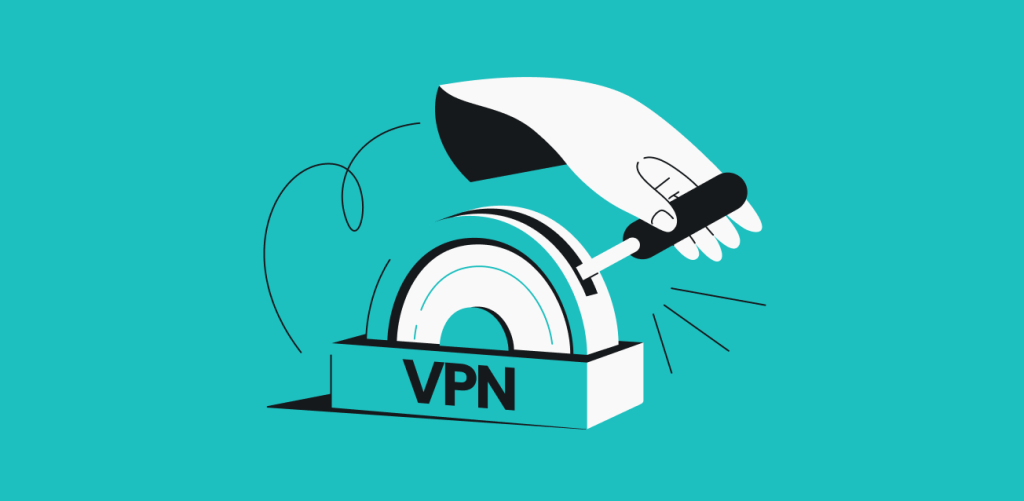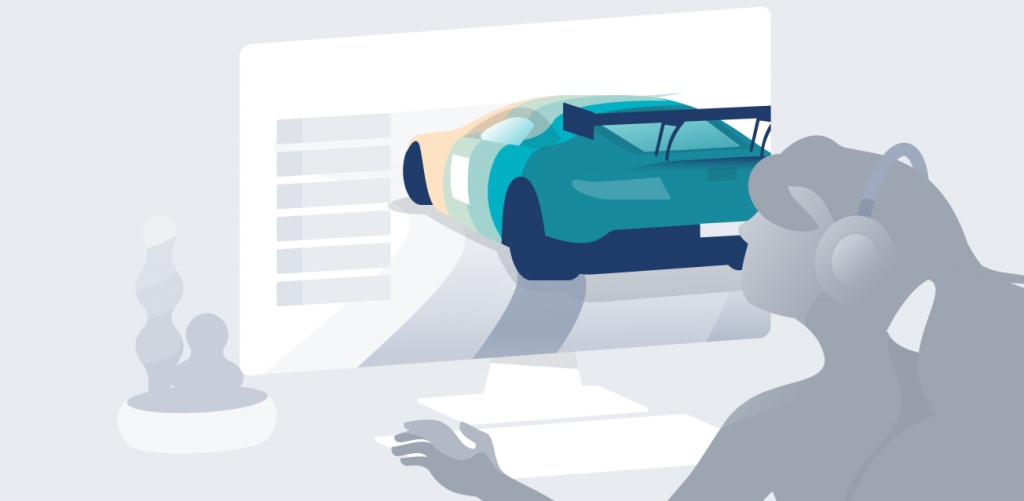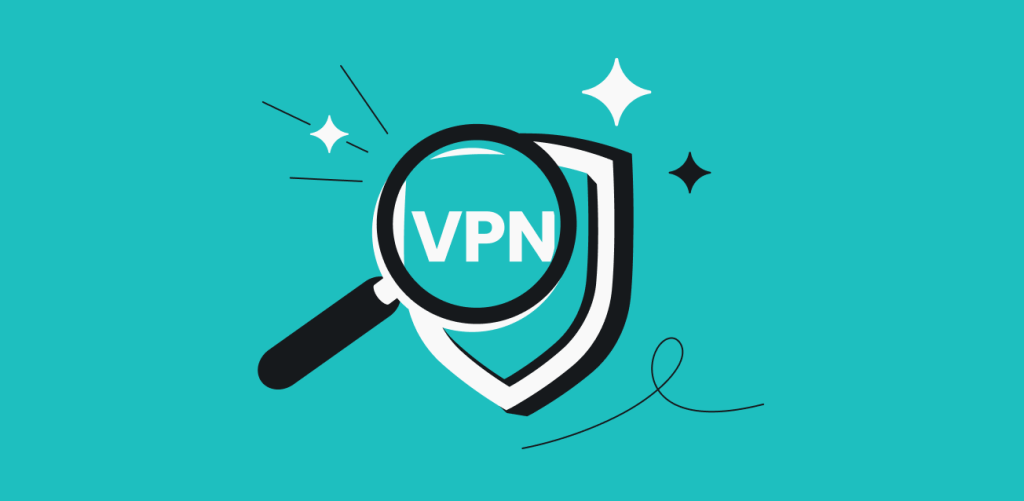
Yes, your ISP (Internet Service Provider) can detect that you’re using a VPN (Virtual Private Network) because they see a connection to a VPN server’s IP address. However, due to VPN encryption, they cannot see your specific online activities, such as websites visited or downloads.
Your ISP handles all your internet traffic, so they notice when you connect to unfamiliar IP addresses. But while they know you’re using a VPN, the encryption prevents them from seeing what you actually do online.
Table of contents
What ISPs can and cannot see when you’re VPN-protected
Here’s what happens when you use a VPN:
What ISPs CAN see | What ISPs CANNOT see |
|---|---|
✅ That you're connected to a VPN server | ❌ Websites you visit |
✅ The VPN server's IP address | ❌ Your search queries |
✅ VPN protocol being used (OpenVPN, WireGuard, etc.) | ❌ Files you download or upload |
✅ When you connect and disconnect | ❌ Personal information you enter |
✅ Amount of data transferred | ❌ Your actual browsing history |
What VPNs hide from ISPs and why it matters
Some ISPs are legally allowed to slow down your internet speed. A VPN encrypts your internet traffic, creating a secure tunnel that prevents ISPs from seeing your actual online activities.
1. Websites visited
What good VPNs do: ISPs cannot see which specific websites you visit, your browsing history, or website URLs and page content
Why it matters: Prevents ISPs from building detailed profiles of your interests and habits for commercial purposes or government surveillance
2. Search queries
What good VPNs do: Search terms remain encrypted and invisible to ISPs, along with which search engines you use
Why it matters: Your private searches, research topics, and personal interests stay completely confidential
3. Content downloads and uploads
What good VPNs do: ISPs cannot see what specific files you download or upload, including their content, types, or sources
Why it matters: Prevents ISPs from throttling your connection based on file-sharing activities or reporting download behavior
4. Streaming activity
What good VPNs do: ISPs cannot see which streaming services you use, content you watch, or streaming quality patterns
Why it matters: Helps avoid bandwidth throttling during peak streaming hours and prevents ISPs from blocking or prioritizing specific streaming services
5. Data entry information
What good VPNs do: Personal information entered on websites, login credentials, and financial data transfers are encrypted
Why it matters: Protects sensitive information from ISP monitoring and reduces data available in potential security breaches
6. Messaging content
What good VPNs do: Email content and recipients, messaging and social media activity, and video call participants remain private
Why it matters: Ensures private communications stay confidential and prevents ISPs from selling communication data to third parties
What can your ISP see when you’re using a VPN, and how?
While a VPN provides significant privacy protection, your ISP still can track your VPN use to some extent, including:
1. VPN connection status
Your ISP can identify that you’re using a VPN because your traffic flows to an unfamiliar IP address (the VPN server) instead of directly to websites. This creates a recognizable pattern that indicates VPN usage.
What this means: Your ISP knows you’re using privacy tools, but cannot see what you’re doing with them.
2. VPN server IP address
When you connect to a VPN, your ISP sees all your traffic going to a single IP address — the VPN server. This is different from normal browsing where traffic would go to multiple different website servers.
What this means: ISPs can identify the VPN service you’re using by comparing destination IPs against VPN server databases.
Privacy impact: Low — only confirms VPN use, doesn’t reveal browsing activity.
3. VPN protocol information
Different VPN protocols use specific network ports, creating identifiable traffic patterns that ISPs can recognize:
- OpenVPN: 1194, 443, 80
- WireGuard: 51820
- IKEv2: 500, 4500
What this means: ISPs can identify which VPN technology you’re using by way of monitoring traffic on VPN-associated ports.
Privacy impact: Minimal — identifies VPN type but not content.
4. Connection timestamps and duration
Your ISP can see when you start and stop your VPN connection, plus how long you stay connected. This is the same information they collect about all your internet usage.
What this means: ISPs know your general usage patterns but cannot correlate this with specific online activities.
5. Bandwidth usage patterns
ISPs can monitor how much data you transfer and make educated guesses about your activities (streaming uses more data than browsing), but they cannot see the actual content.
What this means: ISPs might suspect you’re streaming or downloading large files, but they cannot identify specific content or sources.
6. VPN encryption fingerprints
ISPs can analyze the structure of your encrypted traffic to identify VPN usage, even when VPN traffic uses common ports like 443 (HTTPS)
What this means: Advanced ISPs use Deep Packet Inspection methods to analyze traffic patterns and identify encrypted VPN tunnels, even when using common ports like 443 (HTTPS).
Privacy impact: None for quality VPNs — content remains encrypted.
Maximizing your privacy: best practices
In order to ensure your VPN provides maximum protection from ISP surveillance:
Choose quality VPN providers
- No-logs policy verified by independent audits.
- Strong encryption (AES-256 or equivalent).
- Kill switch to prevent data leaks.
- DNS leak protection.
- Obfuscated servers for restricted regions. Surfshark includes this feature for the OpenVPN (UDP or TCP) protocol.
Optimal configuration
- Enable kill switch protection.
- Use secure protocols (WireGuard or OpenVPN).
- Activate DNS leak protection.
- Choose servers geographically close for better speed.
Additional privacy layers:
- Use HTTPS websites whenever possible.
- Enable two-factor authentication.
- Keep VPN software updated regularly.
- In regions where VPN use is restricted, protocols like Shadowsocks, Stunnel, or Obfs4 can help disguise VPN traffic.
- Using common ports (like 443 for HTTPS) can also make VPN traffic harder to distinguish from regular web browsing.
VPN alternatives: how they compare
Other privacy tools can also improve your online safety, but the level of ISP protection they offer varies, and so do the trade-offs.
Tor Browser
How it works: Routes traffic through three encrypted relays before reaching destination websites.
ISP visibility: ISPs can see Tor usage but not destinations or content.
Pros | Cons |
|---|---|
✅ Free to use | ❌ The Tor Browser is very slow |
✅ Strong anonymity | ❌ Requires a special browser and learning how to use Tor |
✅ No logs kept | ❌ Limited to web browsing |
Proxy servers
How it works: Routes traffic through a single proxy server without encryption.
ISP visibility: ISPs can typically see most proxy traffic and activities.
Pros | Cons |
|---|---|
✅ Often faster than VPNs | ❌ Usually no encryption |
✅ Simple to configure | ❌ Limited privacy protection |
✅ Many free options | ❌ ISPs can often see content |
Free VPNs: why they’re not recommended
Free VPNs seem attractive but, as we outline in the free VPNs vs. paid VPNs article, the free options come with significant privacy and security risks:
- Data logging and sales: free VPNs often sell user data to advertisers;
- Weak encryption: many don’t properly encrypt traffic, defeating the purpose;
- Malware risks: some free VPNs contain malicious software;
- Poor performance: slow speeds and frequent disconnections;
- Limited servers: overcrowded servers reduce reliability.
Paid VPN services like Surfshark invest in proper security, don’t sell user data, and provide reliable performance.
Regional considerations: when ISPs care about VPN use
ISP attitudes toward VPN usage vary significantly by location and local regulations (see: Are VPNs legal?).
VPN-friendly regions (the United States, Europe, Canada, Australia):
- ISPs generally don’t restrict VPN usage;
- Focus on network management rather than blocking;
- VPN use is legal and widely accepted.
Restricted regions (VPN in China, Russia, Iran, the UAE):
- ISPs may be required to block specific websites or VPN traffic;
- Government regulations mandate ISP cooperation;
- Obfuscated servers are often necessary for reliable access.
Troubleshooting ISP-related VPN issues
When ISPs actively interfere with VPN connections, there are still things you can try to restore reliable access. Common problems and solutions include:
Connection blocking
If an ISP blocks known VPN server IP addresses:
- Switch to different VPN servers;
- Use obfuscated servers;
- Try different VPN protocols;
- Contact your VPN provider for updated server lists.
Speed throttling
If an ISP deliberately slows VPN traffic:
- Test multiple server locations;
- Switch VPN protocols (try WireGuard);
- Use servers during off-peak hours;
- Enable obfuscation features.
Connection instability
In case of frequent disconnections or unreliable VPN performance:
- Update VPN software;
- Change DNS settings;
- Disable antivirus VPN interference;
- Try a wired connection instead of Wi-Fi.
Round-up: what your ISP sees
Here’s exactly what your ISP can and cannot see when you’re using a VPN:
Without VPN | With VPN | |
|---|---|---|
Websites visited | Fully visible | ISP sees VPN server only |
Search queries | Fully visible | Encrypted and unreadable |
Downloaded files | Fully visible | Data volume only |
Streaming content | Fully visible | Bandwidth usage patterns |
Personal information | Fully visible | Completely encrypted |
VPN connection | N/A | ISP knows you’re using a VPN |
VPN server IP | N/A | Identifies VPN provider |
Connection times | Visible | Same as normal internet use |
In conclusion: keep your data to yourself, not your ISP
Your ISP can detect when you’re using a VPN, but that’s where their insight ends. The encrypted tunnel created by a quality VPN service effectively blinds your ISP to your actual online activities, protecting your browsing history, downloads, searches, and personal information.
In an era where ISPs can legally monitor, collect, and even sell your browsing data in many regions, a VPN provides essential protection. Choose a reputable provider with strong encryption, verified no-logs policies, and additional privacy features to ensure your online activities remain private from ISP surveillance.
FAQ
Can my ISP block my VPN?
Yes, some ISPs can attempt to block VPN traffic, especially in regions with internet censorship. Using VPN providers that employ obfuscated servers or stealth protocols can help bypass these blocks effectively.
Is a free VPN enough to hide my activity from ISPs?
No, free VPNs often lack proper encryption and may log your data. Many free VPNs don’t adequately protect your privacy from ISP monitoring. A reputable paid VPN provides much stronger privacy protection.
Do ISPs care if I use a VPN?
In most countries, ISPs don’t care about VPN usage. However, in regions with strict internet regulations (like China or Iran), ISPs might be required to report VPN use to authorities or block VPN traffic.
Can my ISP see my VPN’s IP address?
Yes, your ISP always sees the IP address of the VPN server you’re connected to. This is how they know you’re using a VPN, but they cannot see what you’re doing through that VPN connection.
Can my ISP throttle me if I use a VPN?
ISPs can throttle VPN traffic if they detect it, but they cannot throttle based on your specific activities (like streaming) since they cannot see what you’re doing through the VPN. Quality VPNs often help prevent activity-based throttling.
Does a VPN prevent my ISP from storing logs of my activity?
Yes, when properly configured, a VPN prevents ISPs from logging your specific online activities. ISPs can only log that you connected to a VPN server, not what you did through that connection.
Can the government track a VPN through my ISP?
Government agencies can ask ISPs to reveal that you’re using a VPN, but they cannot see your actual online activities through the VPN. Some VPNs offer additional obfuscation features to hide VPN usage entirely.
How do I know if my ISP is blocking my VPN?
Signs include inability to connect to VPN servers, frequent disconnections, or extremely slow speeds only when using a VPN. Try different servers, protocols, or obfuscated connections to bypass potential blocks.
Can my VPN provider see my data?
Technically, VPN providers could see your traffic, but reputable providers use no-logs policies and encryption to prevent this. Choose VPNs with independently audited no-logs policies for maximum privacy protection.


